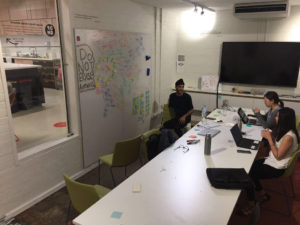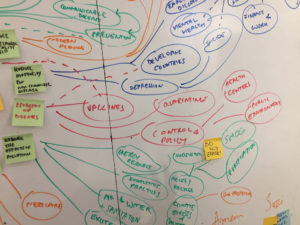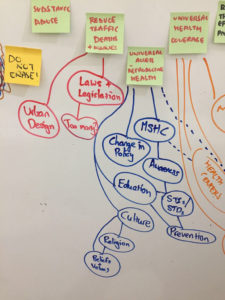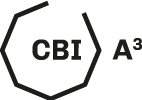What we worked on?
We started by identifying all the opportunity areas we could work on. So we put up post-its and started jotting down problems we can target in our local context in Melbourne. We came up with 36 scenarios that were either the bigger problem or the categories of those problems. So we decided to split up these topics based on how keen we are on researching them and decided to take the one that didn’t interest us to avoid partial and biased research.


Interesting Insights
The topics were too broad to start research at a given point. We realised that we would be going around the same data.
Kanika, a fellow DFM member, and CBI A3 Alumni, helped us start the affinity mapping process. We started by writing down all the categories highlighted withing our Sustainable Development Goal and started throwing factors that affect or are a major role player in our goal. We worked out most of these factors and started working on excel sheets to briefly outline our opportunity cards based on our new research.


We started reading about CERN technology and have started looking at applications of these technologies in order to begin developing our Technology cards. Most of these revolve around three factors:
1. Accelerators
2. Detectors
3. Computing
Most of these technologies seem far too complicated to link to any topic we have tried to research. However, we are focusing on these cards as well before we meet Steve Goldfarb, our guest in the coming classes, who is a physicist who was visiting from CERN.
We got in touch with our buddy team from Inno.Space in Mannhiem, Germany. We will be having a SKYPE video call with them next week after class to discuss CERN technologies further and divide them before we get into in-depth research. This is mostly to make better use of our resources, given the limited time we have.

Recent Comments